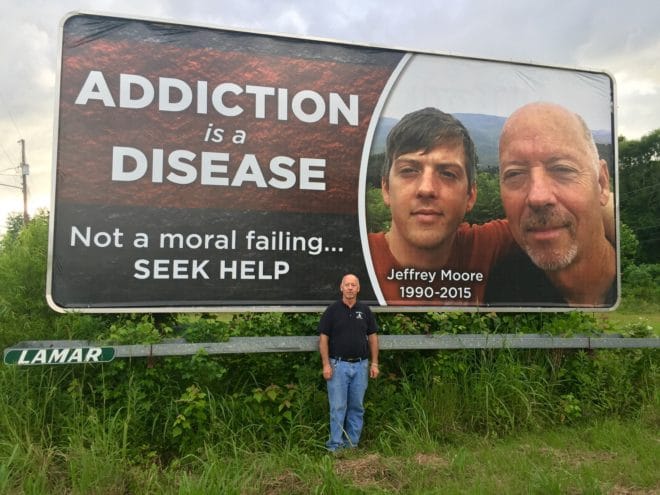In light of the numerous stories focused on opioid addiction and death circulating throughout the country, News Mississippi’s Jared Bounds wanted to tell a story of great hope. Albeit, coming via great loss.
This is a story of pain and loss. Shining through that, however, is a thin ray of hope in recovery.
James Moore lost his son, Jeff, to an injected concoction of heroin and fentanyl. Jeff had successfully completed two rounds of detox and had worked through 60 days of a 90 day drug treatment program before he was kicked out for smoking cigarettes.

I first met James on a hot mid-afternoon in September. He owns a bicycle shop in Hattiesburg, so he’s maintained a fit physique, though he carries a weight on his shoulders, and it shows. James considers himself, in part, to share the blame for losing his son. He says public perception causes people to treat those struggling with addiction as moral deviants, or even lazy and deserving of their pain.
A perception that James admits he bought into for years.
James, a former public servant and law enforcement officer, stepped into my car with a stack of documents and notes under his arm. They were divided into two categories: bike research and drug research.

I let James tell his story while my AC clicked and whirred, trying to keep us cool.
He started with the most important point: the fight against overdose can only be carried out if we stop the dying: (4:30)
Part of James’s mission is to impress upon families, law enforcement and government the life-saving opportunities of Narcan: (5:07)
James carries the loss of his son with him everywhere: (1:41)
The shame heaped upon those suffering from addiction is often compounded by their own inner struggles: (4:10)
That self-deprecation is illustrated here: (1:45)
The depths of addiction cast a shadow of guilt, shame and self-loathing upon those suffering under its oppressive yoke. If we want to change the trend of drug addiction and death, we’ve got to change the way we think about the people who are caught in those depths.
Health is here. Help is here. Hope is here.

Contact the Mississippi Department of Mental Health today for more information.




